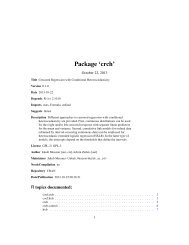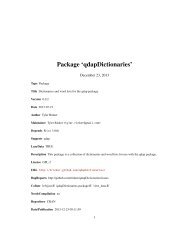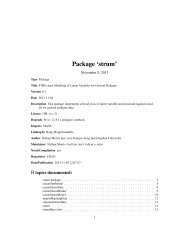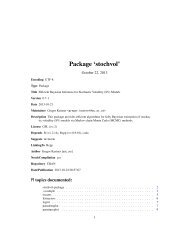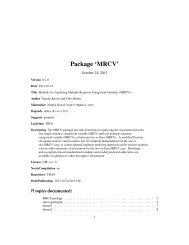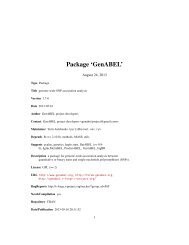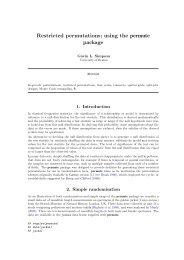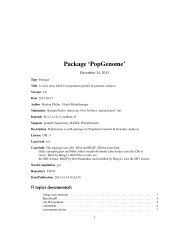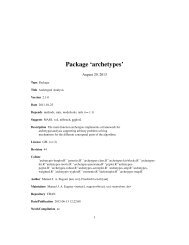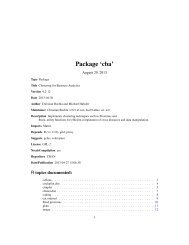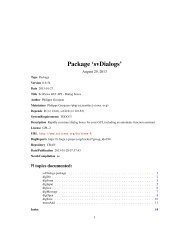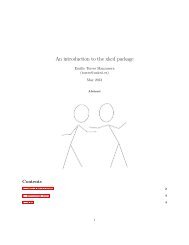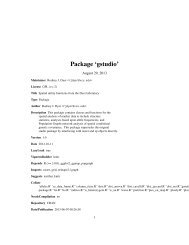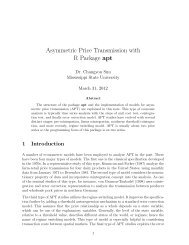Package 'lars'
Package 'lars'
Package 'lars'
You also want an ePaper? Increase the reach of your titles
YUMPU automatically turns print PDFs into web optimized ePapers that Google loves.
4 lars<br />
lars Fits Least Angle Regression, Lasso and Infinitesimal Forward Stagewise<br />
regression models<br />
Description<br />
Usage<br />
These are all variants of Lasso, and provide the entire sequence of coefficients and fits, starting from<br />
zero, to the least squares fit.<br />
lars(x, y, type = c("lasso", "lar", "forward.stagewise", "stepwise"),<br />
trace = FALSE, normalize = TRUE, intercept = TRUE, Gram, eps = .Machine$double.eps, max.steps, use.Gra<br />
Arguments<br />
Details<br />
x matrix of predictors<br />
y response<br />
type One of "lasso", "lar", "forward.stagewise" or "stepwise". The names can be<br />
abbreviated to any unique substring. Default is "lasso".<br />
trace If TRUE, lars prints out its progress<br />
normalize If TRUE, each variable is standardized to have unit L2 norm, otherwise it is left<br />
alone. Default is TRUE.<br />
intercept if TRUE, an intercept is included in the model (and not penalized), otherwise no<br />
intercept is included. Default is TRUE.<br />
Gram The X’X matrix; useful for repeated runs (bootstrap) where a large X’X stays<br />
the same.<br />
eps An effective zero<br />
max.steps Limit the number of steps taken; the default is 8 * min(m, n-intercept),<br />
with m the number of variables, and n the number of samples. For type="lar"<br />
or type="stepwise", the maximum number of steps is min(m,n-intercept).<br />
For type="lasso" and especially type="forward.stagewise", there can be<br />
many more terms, because although no more than min(m,n-intercept) variables<br />
can be active during any step, variables are frequently droppped and added<br />
as the algorithm proceeds. Although the default usually guarantees that the algorithm<br />
has proceeded to the saturated fit, users should check.<br />
use.Gram When the number m of variables is very large, i.e. larger than N, then you may<br />
not want LARS to precompute the Gram matrix. Default is use.Gram=TRUE<br />
LARS is described in detail in Efron, Hastie, Johnstone and Tibshirani (2002). With the "lasso"<br />
option, it computes the complete lasso solution simultaneously for ALL values of the shrinkage<br />
parameter in the same computational cost as a least squares fit. A "stepwise" option has recently<br />
been added to LARS.



